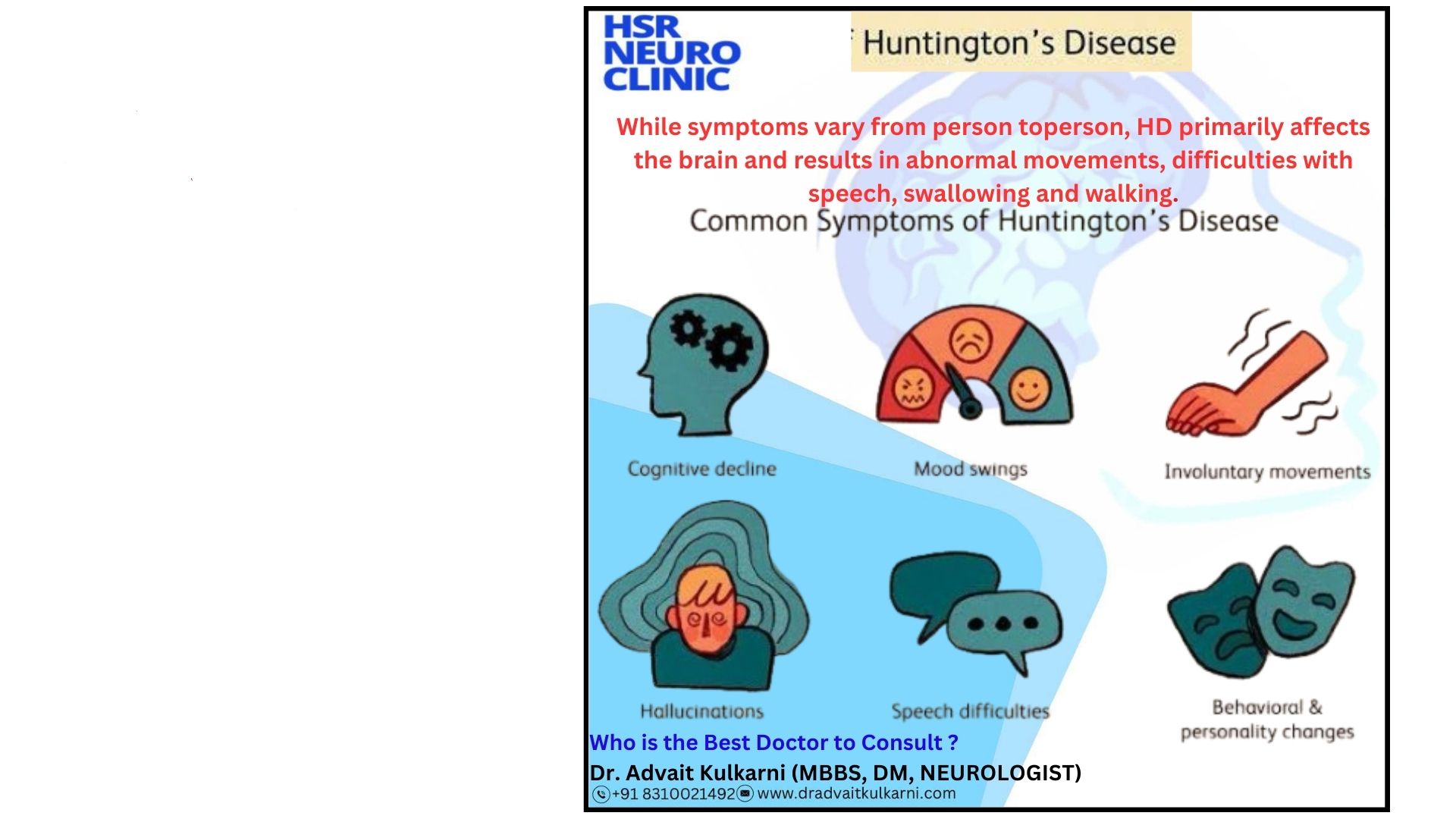+918048034088

This is your website preview.
Currently it only shows your basic business info. Start adding relevant business details such as description, images and products or services to gain your customers attention by using Boost 360 android app / iOS App / web portal.
Huntington’s Disease is a rare, inherited neuro...

Huntington’s Disease is a rare, inherited neurological disorder that progressively damages nerve cells in the brain, affecting movement, cognition, and mental health. It usually appears in adulthood (between ages 30–50), but juvenile cases exist as well. Causes of Huntington’s Disease: Genetic Mutation: HD is caused by a mutation in the HTT gene on chromosome 4. Inheritance: It follows an autosomal dominant pattern, meaning a person with one copy of the faulty gene has a 50% chance of passing it to their children. CAG Repeats: The more CAG repeats in the gene, the earlier and more severe the disease onset. Symptoms of Huntington’s Disease Symptoms worsen over time and can be classified into three categories: 1. Movement Disorders: Involuntary jerking or writhing (chorea) Muscle rigidity or dystonia Slow or abnormal eye movements Impaired balance and coordination Difficulty swallowing and speaking 2. Cognitive Decline: Difficulty in planning and organizing Memory lapses Poor judgment and decision-making Trouble focusing and processing information 3. Psychiatric and Emotional Symptoms: Depression, anxiety, and mood swings Irritability or aggression Social withdrawal Suicidal thoughts in severe cases Precautions & Prevention Since HD is genetic, prevention focuses on genetic counseling and early awareness: ✅ Genetic Testing: People with a family history of HD should consider genetic counseling before planning a family. ✅ Prenatal & Preimplantation Testing: Couples can opt for in-vitro fertilization (IVF) with genetic screening to prevent passing on HD. ✅ Early Diagnosis: Recognizing symptoms early can help manage progression effectively. Management of Huntington’s Disease: While there’s no cure, a multidisciplinary approach can improve quality of life. 🧠 Neurological Care: Regular check-ups with a neurologist to monitor progression. 🍎 Diet & Nutrition: High-caloric diets help compensate for increased energy needs due to involuntary movements. 🏃♂️ Physical Therapy: Helps maintain mobility, balance, and coordination. 🗣 Speech Therapy: Assists with communication and swallowing difficulties. 🧘♂️ Psychological Support: Counseling, cognitive therapy, and antidepressants for mood regulation. Treatment Options: There’s no cure, but medications can help manage symptoms: 💊 Control involuntary movements. 💊 Antidepressants – Manage depression and anxiety. 💊 Antipsychotics – Reduce agitation and hallucinations. 💊 Anti-seizure Medications – Help with muscle rigidity and mood swings. Future Research & Hope: Ongoing gene therapy trials, stem cell research, and experimental drugs are paving the way for potential treatments to slow or stop disease progression. Huntington’s Disease is a progressive but manageable condition. Genetic counseling, early intervention, and a holistic treatment approach. ✅Lifestyle Tips for Seizure Prevention 🎯 Maintain a regular sleep schedule. 🎯 Manage stress with relaxation techniques. 🎯 Avoid known triggers (alcohol, flashing lights, dehydration). 🎯 Follow a healthy diet and stay hydrated. 👉 If you or a loved one notice symptoms like above , consult the Best Neurologist near you promptly. Early care can make a meaningful difference. The nearest Neurologist in HSR Layout, Bengaluru. 📍Dr. Advait Kulkarni (Neurologist, MBBS, DM) www.dradvaitkulkarni.com

